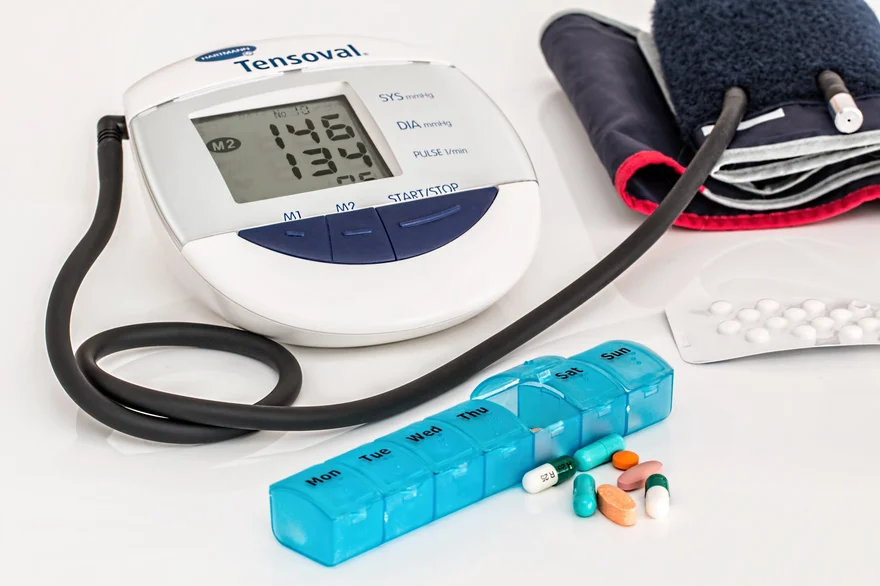Preventive Healthcare
Vitamin K Deficiency: Symptoms, Causes, Types & Treatment
5006 Views
0

What is a Vitamin? What is Vitamin K Deficiency?
Vitamins are essential molecules. These important micronutrients cannot be produced in your body on their own. You must include them in your diet. Vitamins are the cofactors that regulate enzyme activity.
Vitamin K is a group of fat-soluble vitamins. Absorption of this vitamin depends on the gastrointestinal tract and pancreas. Malabsorption syndrome leads to decreased absorption, resulting in a deficiency of this vitamin.
A deficiency of this vitamin is less likely in adults and more common in infants. Vitamin K deficiency bleeding (VKDB) is more common in neonates and should be diagnosed and treated at the earliest.
Types of Vitamin K
- Vitamin K1, which is phylloquinone.
- Vitamin K2, which is menaquinone.
Why is Vitamin K Important?
Many proteins required for blood clotting are made with the help of vitamin K.
- Production of Blood Clotting Factors: A protein called thrombin is directly linked to blood clotting and depends on vitamin K.
- For Bone Development: Another protein that needs vitamin K to generate healthy bone tissue is osteocalcin.
What are the Sources of Vitamin K?
- The most important source of vitamin K comes from your diet.
- Dietary sources of vitamin K1, or phylloquinone, come from leafy greens such as spinach, lettuce, broccoli, and kale.
- Fermented foods contain vitamin K2.
- Endogenous sources of vitamin K include certain intestinal flora.
- Some fruits also contain vitamin K at a very low level.
- Newborn babies have sterile guts. The introduction of breast- or bottle-feeding introduces bacterial flora to their guts.
What is the Recommended Daily Intake of Vitamin K?
It differs between men and women.
- Woman: 90 micrograms per day.
- Men: 120 micrograms per day.
What are the Types of VKDB in Neonates?
- Early-Onset: Bleeding occurs within 24 hours of birth. Maternal medications, such as anticonvulsants, used during pregnancy are more likely to cause issues.
- Classic: bleeding occurs within one to four weeks of birth.
- Late-Onset: Occurs within three to twelve weeks of birth.
Symptoms of Vitamin K Deficiency
Impaired blood clotting is one of the most important clinical features.
- Increased risk of bleeding with minor trauma and cuts.
- Mucosal bleeding.
- Nose bleeding/epistaxis.
- The skin bleeds easily and is seen as red dots on the skin.
- Bleeding in the gums.
- Abnormally heavy bleeding during menstruation.
- Black stools.
- Presence of blood in the urine.
- Late re-bleeding after surgery or tooth extraction.
- Deep muscle bleeding (hematoma).
- A severe deficiency can cause intracranial bleeding.
Clinical findings in neonates are:
- Bleeding after umbilical cord separation or after circumcision.
- NICU infants: vomiting, seizures
- Collection of blood in the lungs
- Bleeding inside the stomach.
Other chronic clinical findings with vitamin K deficiency include:
- Decreased bone mineralization. A lack of vitamin K causes the synthesis of inactive osteocalcin. Osteocalcin has a role in bone mineralization.
- Osteoporosis: a condition in which a normal bone becomes porous.
- Increased risk of fractures.
Causes of Vitamin K Deficiency
Neonatal:
- Gut sterility.
- Medications used during pregnancy.
- NICU infants.
- Parental refusal of vitamin K administration.
- Excessive antibiotic use.
Adults:
- Large doses of vitamin A or E can impair the gut's ability to absorb vitamin K.
- Long-term use of antibiotics such as cephalosporins can destroy bacteria in the gut, resulting in malabsorptive disorders of vitamin K.
- Fat malabsorption. Problems in the biliary system, small intestine, or cysts or fibrosis in the pancreas can cause malabsorptive disorders of fat and fat-soluble vitamins, including vitamin K.
- Prolonged inflammation of the gastrointestinal tract.
- Surgical removal of the terminal part of the small intestine. This results in decreased bile salts, which leads to decreased absorption of fat-soluble vitamins.
- Impairment in the release of bile from the liver. Liver disease interferes with the carboxylation process.
- Medications such as warfarin.
Diagnosis of Vitamin K Deficiency
Laboratory investigation
- Blood tests show increased prothrombin time (PT). This is often one of the first diagnosis of vitamin K deficiency.
- If the deficiency lasts for a very long time, then prolonged partial prothrombin time (PTT) is also seen.
- PIVKA-II levels are increased. Protein induced by vitamin K absence or antagonism (PIVKA-II) is a protein produced when there is a lack of vitamin K in your diet. This is a screening marker for subclinical vitamin K deficiency.
- Levels of factors 2, 7, 9, and 10 decreased.
Can You Prevent Vitamin K Deficiency?
A single dose of vitamin K at birth can prevent this deficiency in neonates. Vitamin K deficiency is nearly always curable. Adults with this deficiency without treatment run the risk of severe bleeding.
Speak with your doctor about taking a vitamin K supplement. Have your prothrombin time levels checked, especially if you have any disorders that cause fat malabsorption. The same holds for individuals on warfarin and other anticoagulants.
Treatment of Vitamin K Deficiency
- Prophylaxis in neonates: intramuscular administration of vitamin K
- In VKDB neonates, an intravenous transfusion of vitamin K is administered.
- In adults, oral or subcutaneous medications are recommended.
- In cases of severe bleeding due to vitamin K deficiency, a fresh frozen plasma (FFP) transfusion is given.
Conclusion
Vitamin K deficiency bleeding or VKDB is more commonly seen in the first few weeks after birth. Most adults with vitamin K deficiency do not have clinically significant bleeding, and the exceptions to this are when vitamin deficiencies are caused by medications like warfarin or conditions like inflammatory bowel disease.
If identified and treated immediately, the prognosis is good for newborns with VKDB. If treatment is not provided, it can lead to intracranial bleeding, brain damage, or even death.
For more information on vitamin K deficiency and to know your level of vitamin K, please visit or call Metropolis Labs. You can also book an appointment on their website for at-home testing and check-ups. A team of qualified blood collection technicians makes at-home visits for blood samples, which are processed at advanced diagnostic labs. The reports are shared online via email and through the Metropolis TruHealth app.























 WhatsApp
WhatsApp